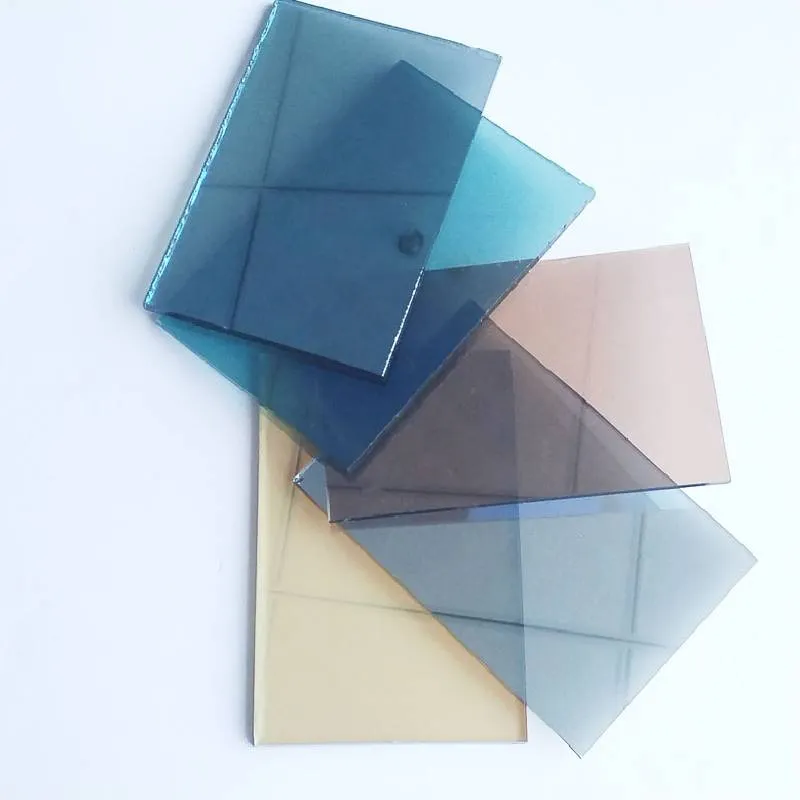The Role of Architectural Glass Manufacturers in Modern Construction
In contemporary architecture, glass plays an essential role not only as a functional material but also as a statement of aesthetic appeal and innovative design. Architectural glass manufacturers have become pivotal in shaping the skyline of cities, providing building solutions that combine beauty, sustainability, and structural integrity.
Innovation in Glass Production
Architectural glass manufacturers are at the forefront of technological innovation. The introduction of new manufacturing techniques, such as tempering, lamination, and coating, has transformed ordinary glass into a high-performance material. For instance, tempered glass is treated through heat processes that enhance its strength, making it suitable for high-rise buildings and public spaces where safety is paramount. Moreover, laminated glass, composed of two or more layers of glass bonded with interlayer materials, not only increases safety but also provides improved sound insulation and UV protection.
Coatings also play an integral role in the functionality of architectural glass. Low-emissivity (Low-E) coatings improve thermal insulation, effectively reflecting heat during warmer months while retaining warmth in cooler seasons. This energy-efficient feature has made architectural glass a cornerstone in green building practices. Manufacturers continuously work towards developing advanced coatings that enhance energy efficiency while maintaining transparency and aesthetics.
Sustainability and Environmental Impact
As global awareness regarding environmental issues rises, architectural glass manufacturers are committed to sustainable practices. The production of glass is energy-intensive, yet advancements in manufacturing processes aim to reduce the carbon footprint associated with glass production. Many manufacturers now utilize recycled glass in their products, promoting a circular economy. This not only conserves raw materials but also significantly lowers energy consumption in the production process.
In addition, architectural glass products contribute to energy efficiency in buildings. By incorporating large expanses of glass, architects can capitalize on natural daylight, reducing the need for artificial lighting and lowering energy consumption. Manufacturers are also exploring options such as solar control glass, which minimizes heat gain from sunlight, further enhancing the energy efficiency of buildings.
architectural glass manufacturer
Design Flexibility and Aesthetics
Architectural glass manufacturers offer an incredible range of products that cater to varied design needs. From structural glazing systems to decorative glass, the versatility of this material is unparalleled. Architects have the freedom to create dynamic facades, expansive windows, and innovative interior spaces. The transparency and reflective properties of glass can transform the perception of space, creating an illusion of openness and fluidity.
Moreover, advancements in digital printing technologies have allowed manufacturers to produce custom graphics and patterns on glass surfaces. This customization enables architects to merge function with art, creating visually stunning designs that reflect the culture and identity of a space. Architectural glass can thus serve both pragmatic and artistic purposes, enhancing the overall impact of a building.
Collaboration and Future Directions
The relationship between architects, builders, and glass manufacturers is crucial for the successful realization of innovative designs. Collaboration ensures that the chosen glass products meet safety guidelines, performance criteria, and aesthetic visions. As buildings become more complex, the role of architectural glass manufacturers continues to evolve, requiring them to adapt to new challenges in construction and design.
Looking ahead, the future of architectural glass manufacturing is promising. With increasing demand for smart glass technology—glass that can change transparency based on environmental conditions—this sector is poised for significant growth. Smart glass not only enhances energy efficiency but also offers dynamic control over light and thermal conditions, catering to the needs of modern building occupants.
In conclusion, architectural glass manufacturers are indispensable players in the construction industry. Their innovative solutions and commitment to sustainability enhance the functionality and beauty of buildings, creating spaces that are not only efficient but also aesthetically pleasing. As technology progresses and environmental concerns grow, the role of these manufacturers is likely to become even more integral, shaping the architectural landscape of our future.
 Afrikaans
Afrikaans  Albanian
Albanian  Amharic
Amharic  Arabic
Arabic  Armenian
Armenian  Azerbaijani
Azerbaijani  Basque
Basque  Belarusian
Belarusian  Bengali
Bengali  Bosnian
Bosnian  Bulgarian
Bulgarian  Catalan
Catalan  Cebuano
Cebuano  Corsican
Corsican  Croatian
Croatian  Czech
Czech  Danish
Danish  Dutch
Dutch  English
English  Esperanto
Esperanto  Estonian
Estonian  Finnish
Finnish  French
French  Frisian
Frisian  Galician
Galician  Georgian
Georgian  German
German  Greek
Greek  Gujarati
Gujarati  Haitian Creole
Haitian Creole  hausa
hausa  hawaiian
hawaiian  Hebrew
Hebrew  Hindi
Hindi  Miao
Miao  Hungarian
Hungarian  Icelandic
Icelandic  igbo
igbo  Indonesian
Indonesian  irish
irish  Italian
Italian  Japanese
Japanese  Javanese
Javanese  Kannada
Kannada  kazakh
kazakh  Khmer
Khmer  Rwandese
Rwandese  Korean
Korean  Kurdish
Kurdish  Kyrgyz
Kyrgyz  Lao
Lao  Latin
Latin  Latvian
Latvian  Lithuanian
Lithuanian  Luxembourgish
Luxembourgish  Macedonian
Macedonian  Malgashi
Malgashi  Malay
Malay  Malayalam
Malayalam  Maltese
Maltese  Maori
Maori  Marathi
Marathi  Mongolian
Mongolian  Myanmar
Myanmar  Nepali
Nepali  Norwegian
Norwegian  Norwegian
Norwegian  Occitan
Occitan  Pashto
Pashto  Persian
Persian  Polish
Polish  Portuguese
Portuguese  Punjabi
Punjabi  Romanian
Romanian  Russian
Russian  Samoan
Samoan  Scottish Gaelic
Scottish Gaelic  Serbian
Serbian  Sesotho
Sesotho  Shona
Shona  Sindhi
Sindhi  Sinhala
Sinhala  Slovak
Slovak  Slovenian
Slovenian  Somali
Somali  Spanish
Spanish  Sundanese
Sundanese  Swahili
Swahili  Swedish
Swedish  Tagalog
Tagalog  Tajik
Tajik  Tamil
Tamil  Tatar
Tatar  Telugu
Telugu  Thai
Thai  Turkish
Turkish  Turkmen
Turkmen  Ukrainian
Ukrainian  Urdu
Urdu  Uighur
Uighur  Uzbek
Uzbek  Vietnamese
Vietnamese  Welsh
Welsh  Bantu
Bantu  Yiddish
Yiddish  Yoruba
Yoruba  Zulu
Zulu 

